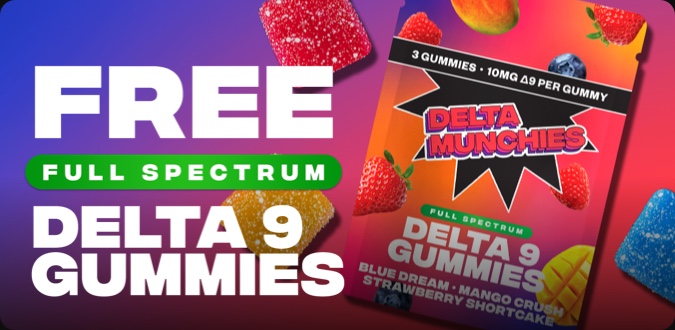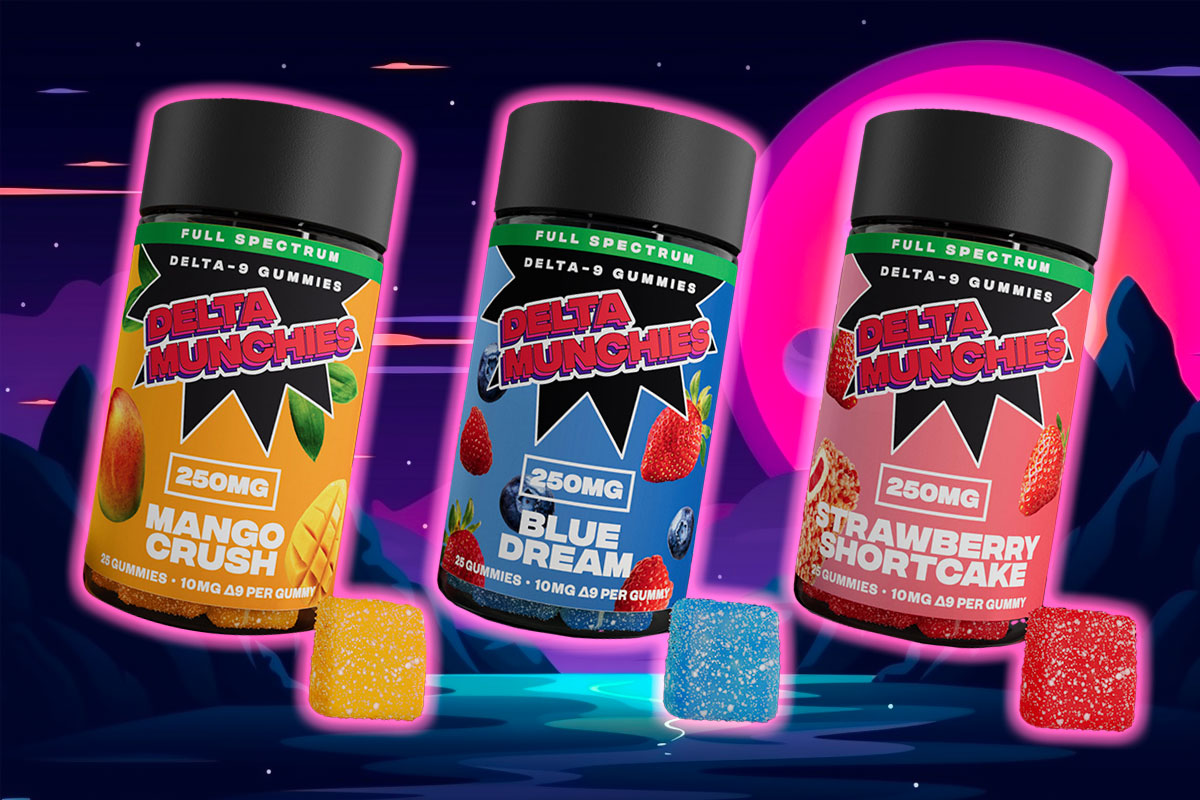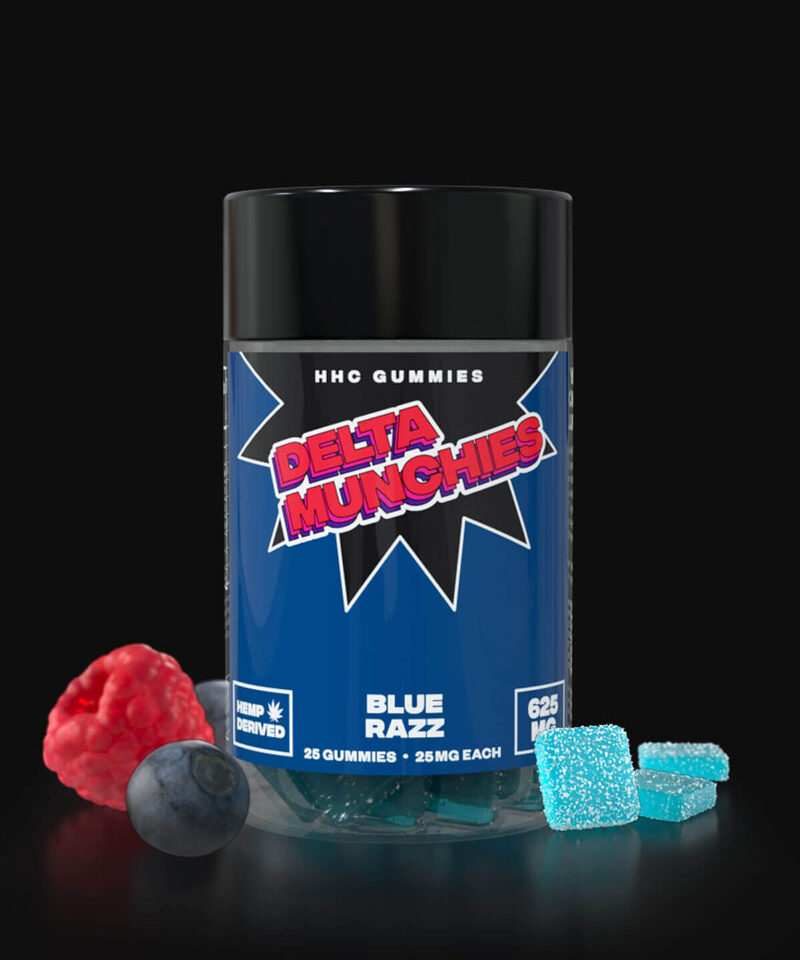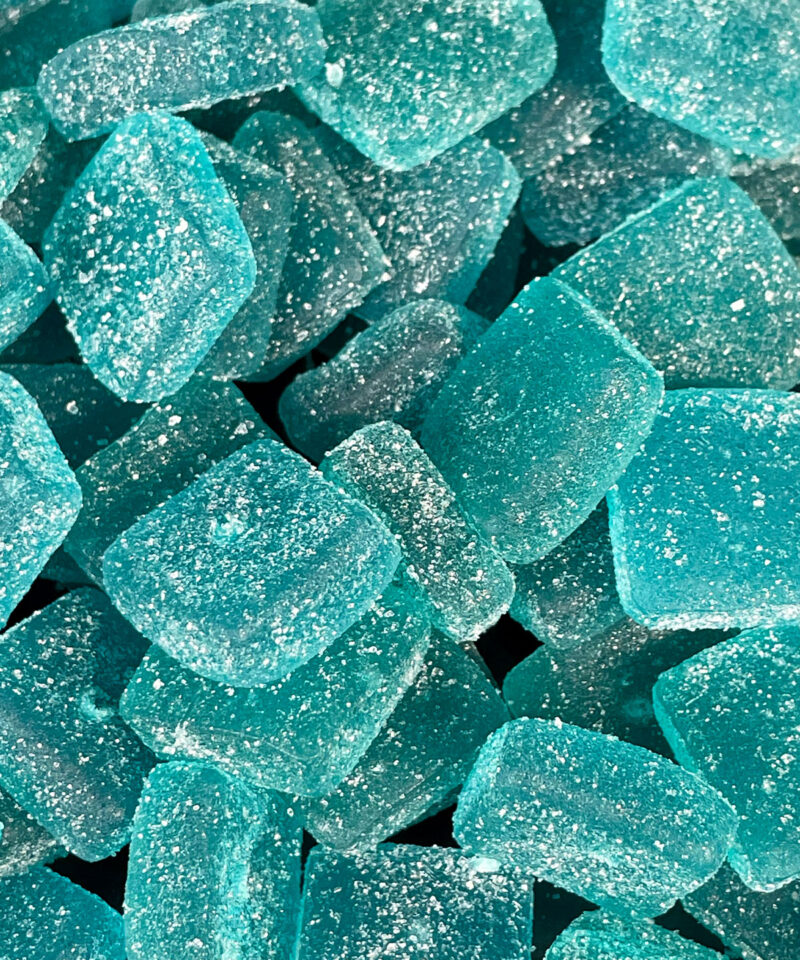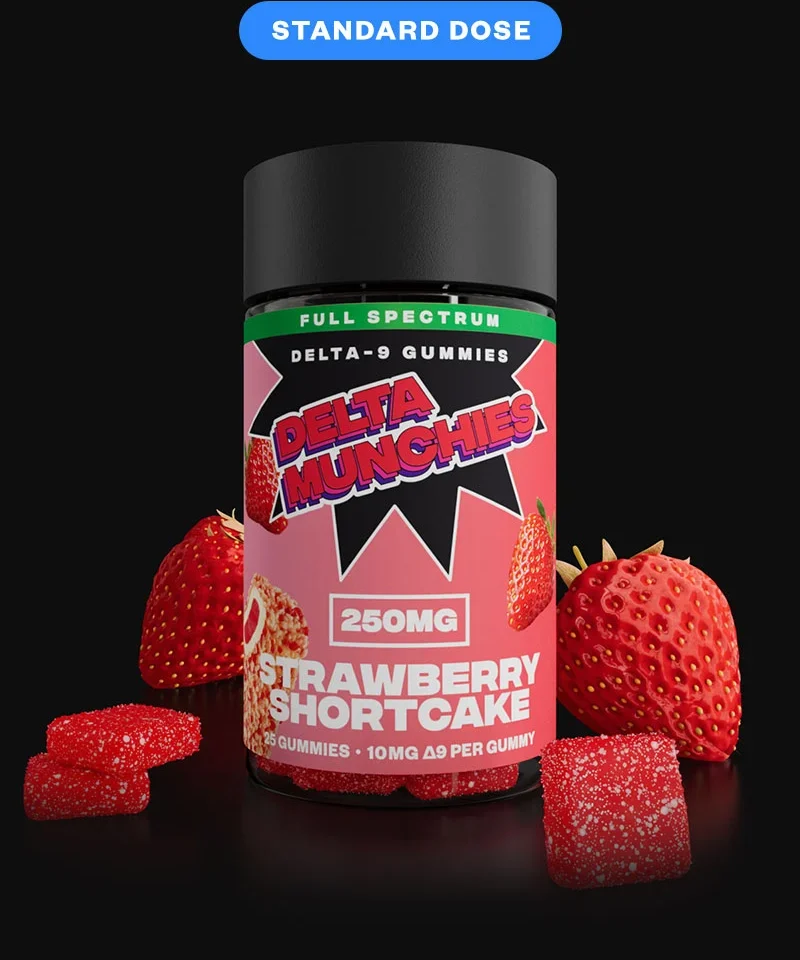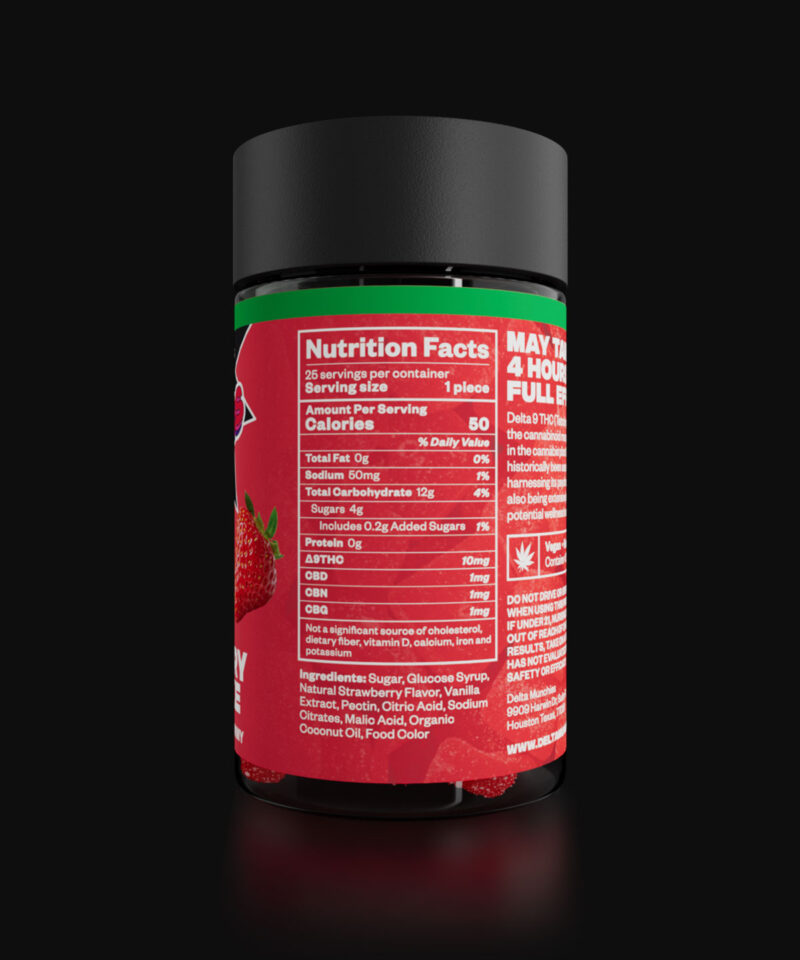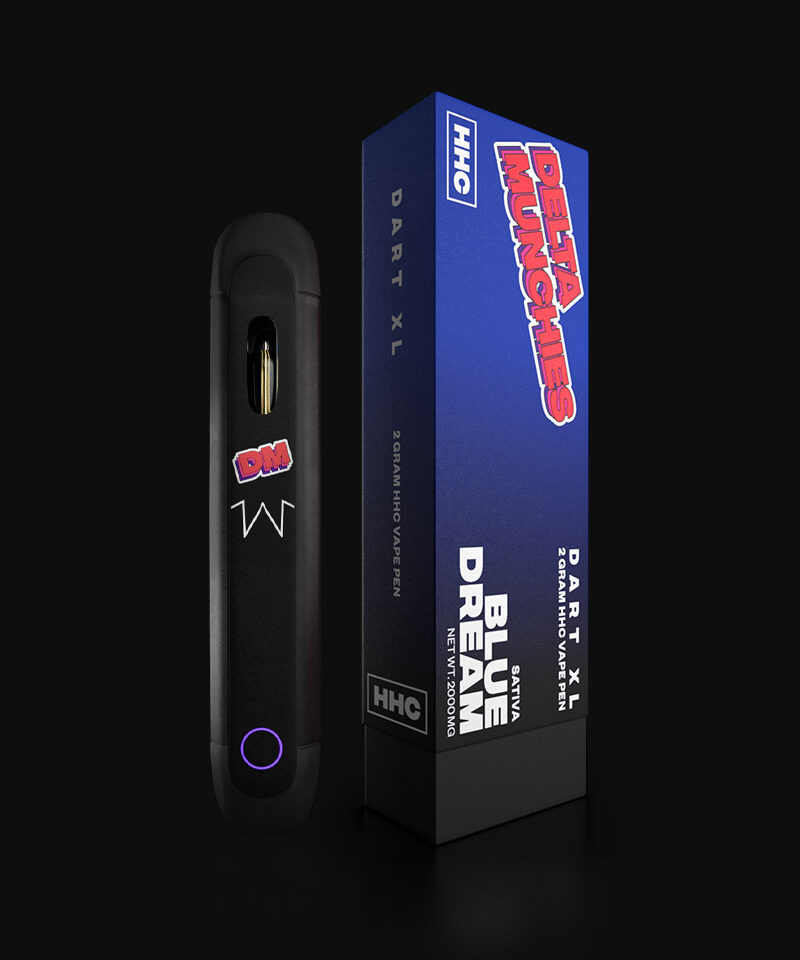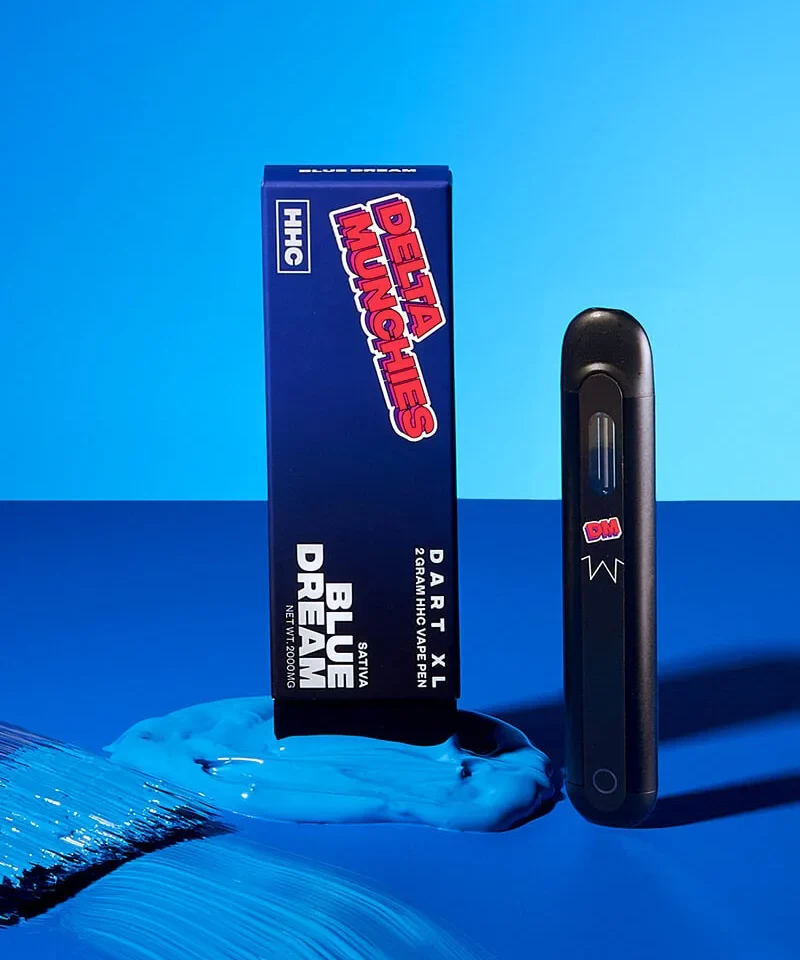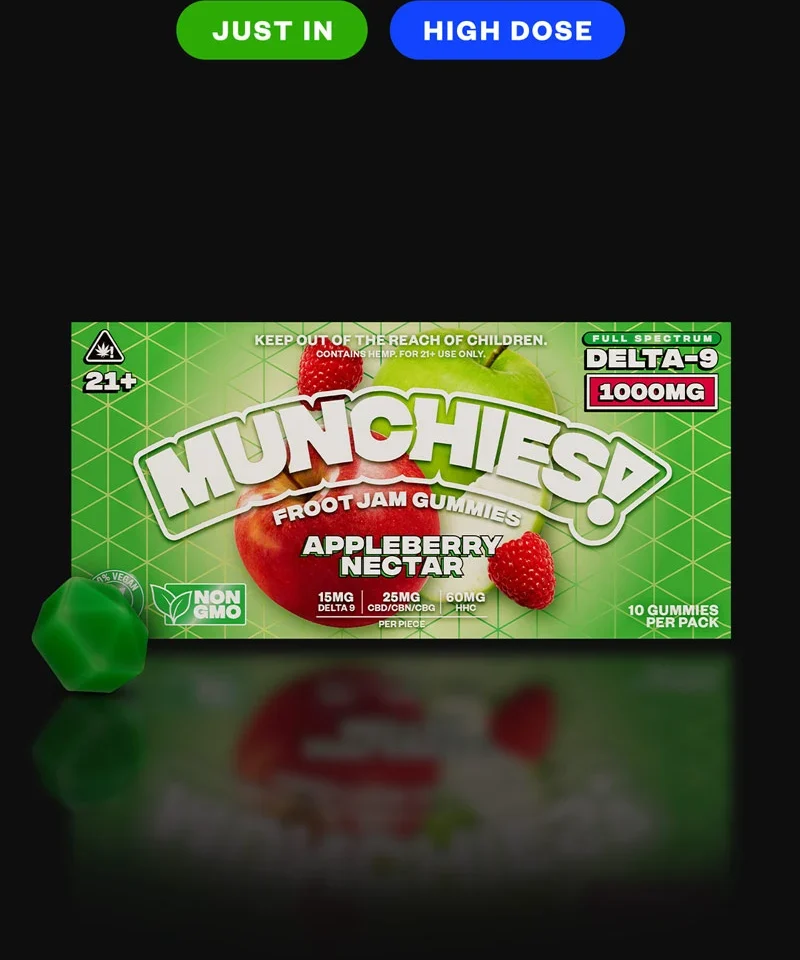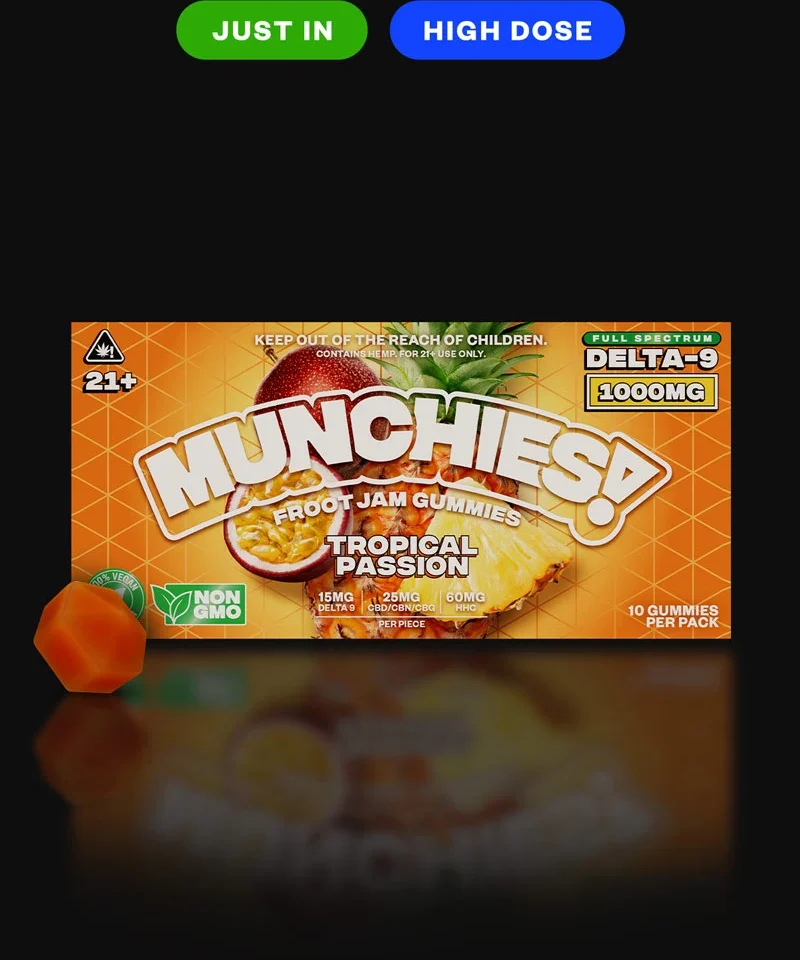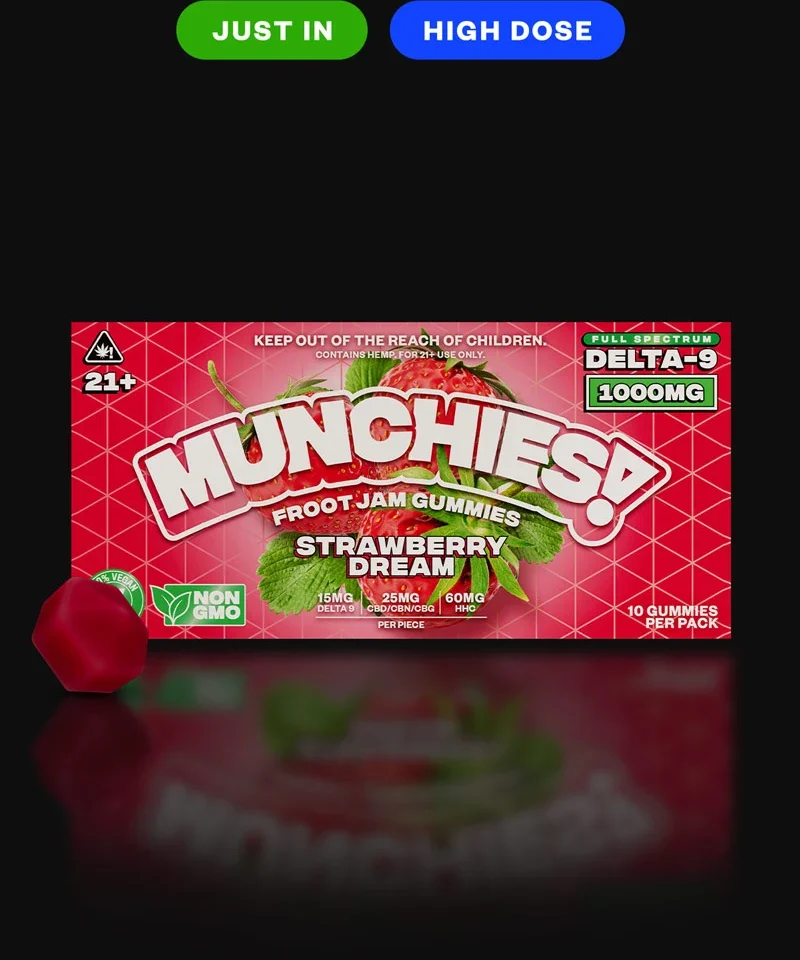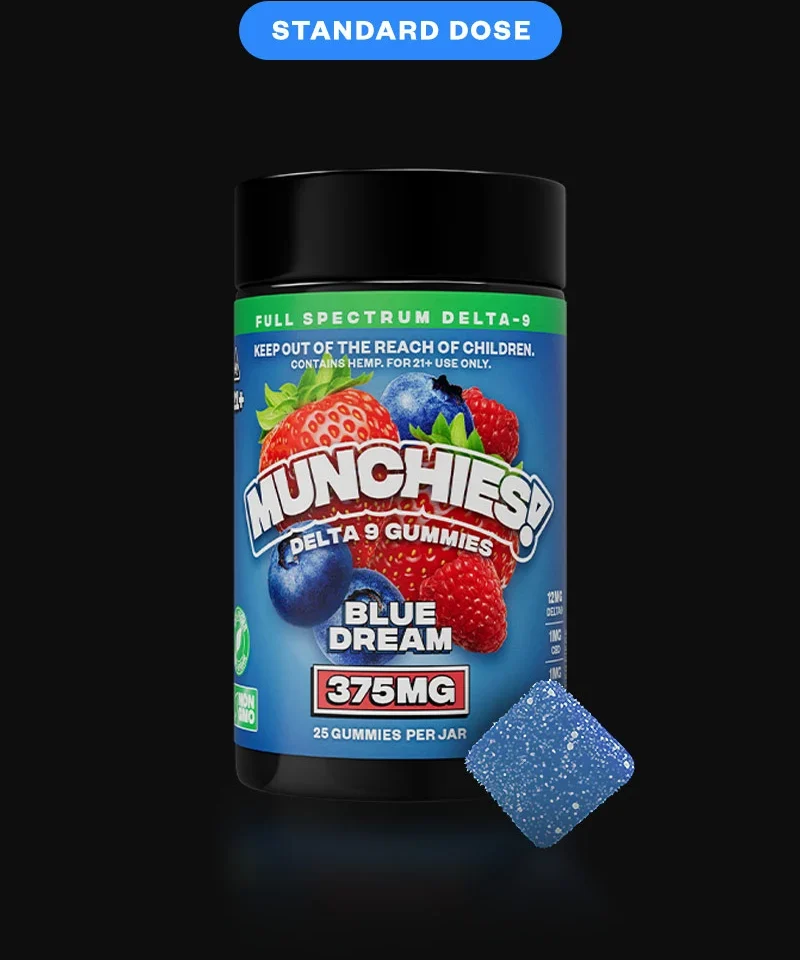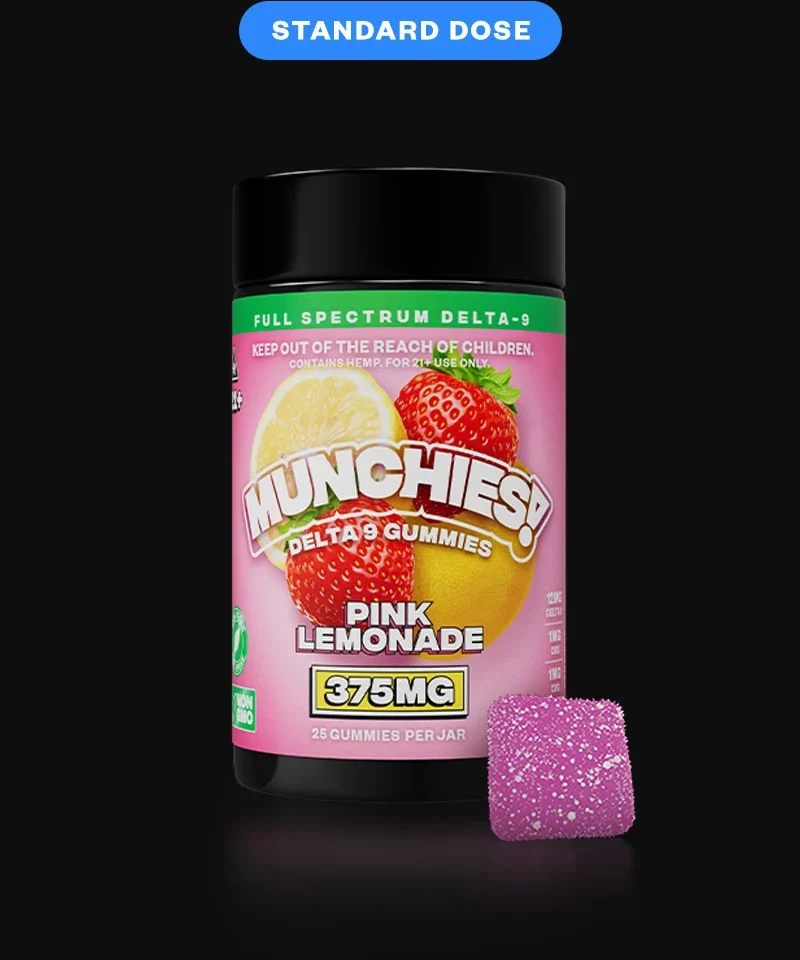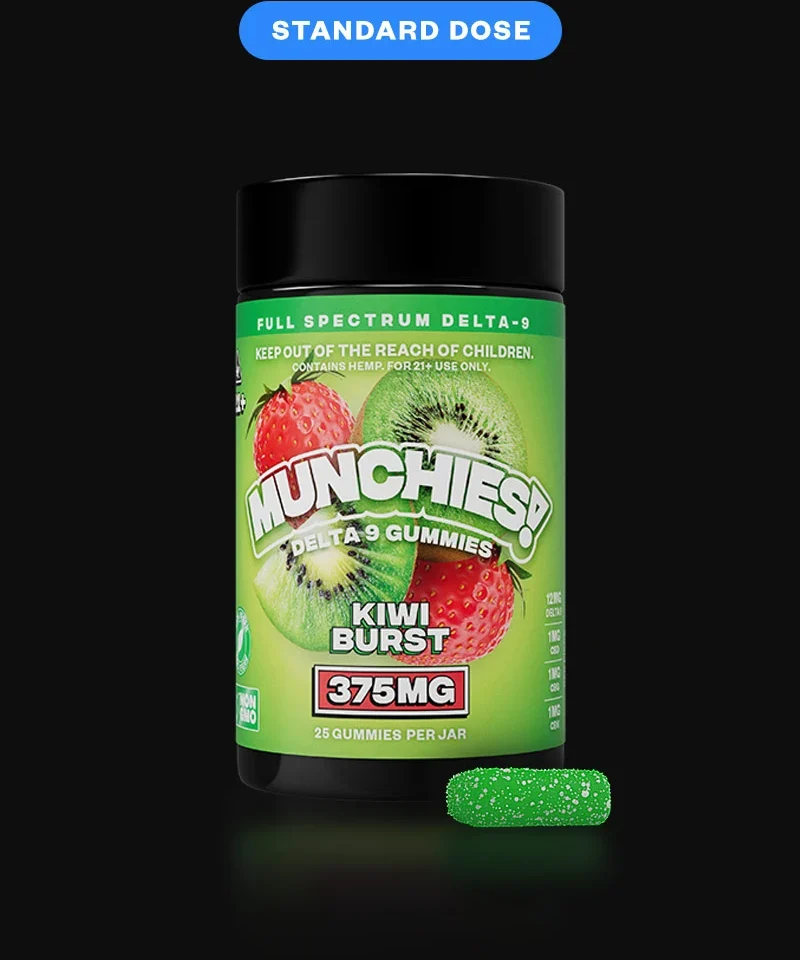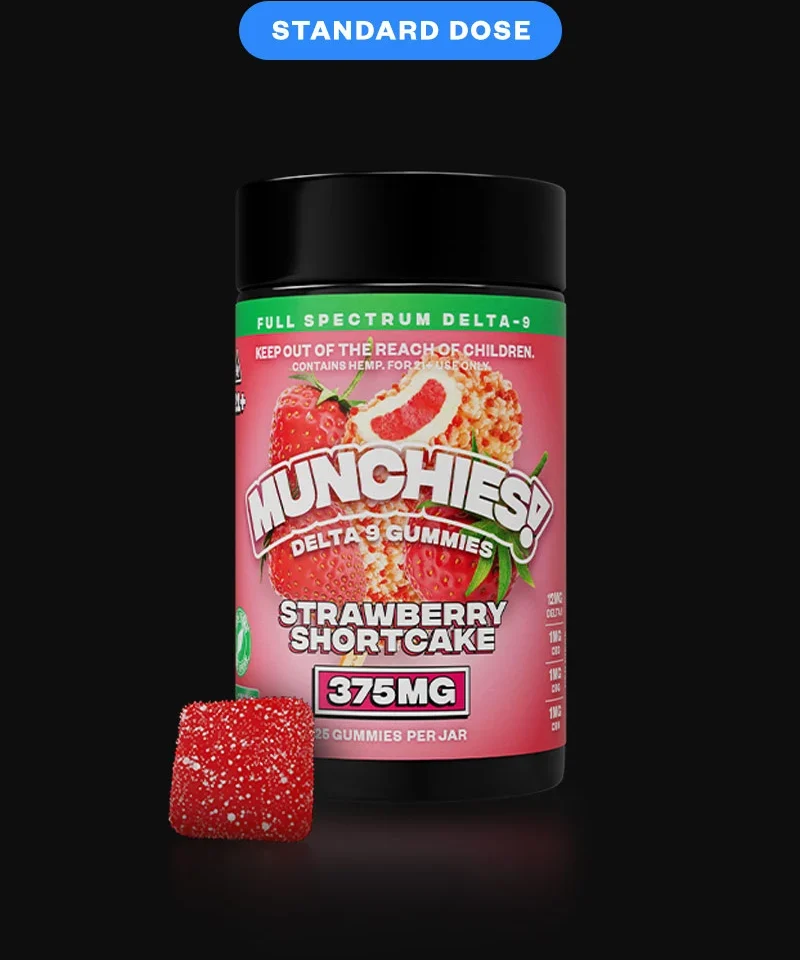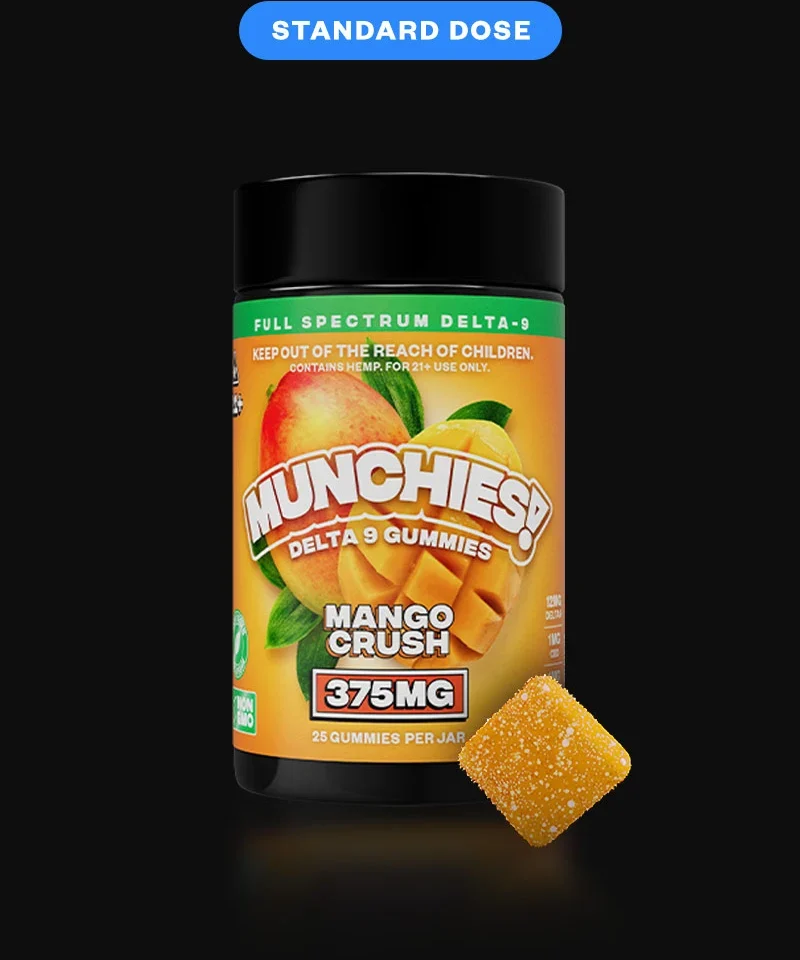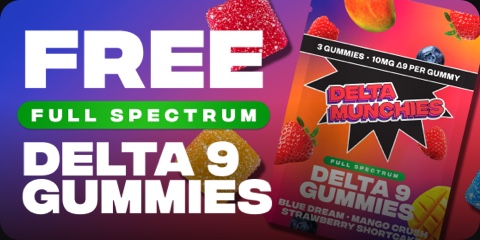Delta 9, Informative
HHCO vs. Delta 9
There is always room for growth and discoveries in the weed world. Now, the conversation is swiftly moving to novel cannabinoids with fancy names like THC-O, HHC, THCV, etcetera. But what are these new trailblazers?
This emerging breed of canna compounds is called semi-synthetic cannabinoids (SSCs). They are naturally produced in trace amounts, so the only way to obtain them in large quantities is via artificial synthesis.
If you are a fan of cannabis, then you are probably excited about these new cannabinoids. That’s why we’ll take a deep dive into what SSCs are, their potential risks and benefits, and their legality.
Looking for hemp-derived cannabinoids? Delta Munchies has got you covered! Here are some of our best-selling HHC and delta 9 products.
Delta 9 THC
Contents
- Key Takeaways
- What is HHCO?
- How is HHCO Made?
- What are the Effects of HHCO
- What are the Benefits of HHCO
- Potential Side Effects of HHCO
- Best Way to Take HHCO
- What is Delta 9?
- How is Delta 9 Made?
- What are the Effects of Delta 9
- What are the Benefits of Delta 9
- Potential Side Effects of Delta 9
- Best Way to Take Delta 9
- HHCO vs. Delta 9: Effects
- HHCO vs. Delta 9: Potency
- HHCO vs. Delta 9: Legality
- HHCO vs. Delta 9: Cost
- HHCO vs. Delta 9: Which One is Right for You?
- Where to Buy Delta 9 THC
Key Takeaways
- HHCO is a non-natural cannabinoid acetate formed by adding an acetate group to HHC. It’s thought to be more potent than delta 9 THC.
- Delta 9 is a naturally occurring cannabinoid in cannabis and the main psychoactive ingredient.
- There isn’t much research on HHCO since it’s a new cannabinoid. However, it seems to have similar potential benefits and side effects as delta 9.
- HHCO’s legality is a grey area, with the DEA recently confirming that such cannabinoids are not hemp.
What is HHCO?
HHCO, or hexahydrocannabinol acetate, is among an emerging generation of cannabinoids produced entirely synthetically. It is not manufactured naturally by cannabis but by artificially adding hydrogen molecules to HHC. This process is called hydrogenation.
As a new cannabinoid, not much is known about HHCO. So, much of its chemical and pharmacological effects are inferred from its close relationship with HHC. On its part, HHC is made by hydrogenating a THC compound like delta 8 or 9.
Delta 9 is a controlled substance under the CSA, so CBD has become an appropriate precursor for delta 8. So, what is the link between delta 8, HHC, and HHCO?
We will get to that shortly. Meanwhile, check out our blog article on the difference between delta 8 vs. delta 9 THC.
How is HHCO Made?
HHCO is an acetate of HHC – a naturally occurring cannabinoid mainly produced artificially. The process of making HHCO starts with the conversion of hemp CBD into delta 8 THC. Delta 8 is then hydrogenated to form HHC, which is treated with acetic anhydride to form HHCO.
Since HHCO is made from a THC compound, it is psychoactive. In most instances, acetate salts are often stronger than their precursors explaining why HHCO is significantly stronger than HHC. That’s because the acetate functional group is more reactive than the hydroxyl group of regular THCs.
HHCO is sold in various forms, including carts, edibles, and HHCO-infused hemp flower. Check out the differences and similarities between live resin carts vs normal carts.
What are the Effects of HHCO
Like other cannabinoids, HHCO affects the body by interacting with the endocannabinoid system (ECS). This vast network of neurotransmitters, enzymes, and receptors mediates various body functions to establish balance (homeostasis).
When cannabinoids bind to these receptors, they activate, triggering a wide range of physiologic responses. The more potent the cannabinoid, the stronger the effect. This is why delta 9 THC produces more intense mind and body effects than delta 8 or 10.
HHCO is considered more potent than HHC, with some users suggesting it could be 3x stronger. HHC is half as strong as delta 9, so HHCO could be more powerful than delta 9! Of course, these claims aren’t backed by scientific studies, so HHCO’s potency remains unknown.
Equally, there’s little research on its effects, so we rely on its close link to HHC to make connections. These are both psychoactive compounds, so they can induce a high. If it’s your first time with HHCO, start with low doses to avoid taking more than you can handle.
What are the Benefits of HHCO
As mentioned earlier, the effects and benefits of HHCO are largely anecdotal. But owing to its THC lineage, users could experience physical relaxation, pain and anxiety relief, and anti-inflammatory effects.
Also, at lower doses, you may experience euphoria, mental clarity, and enhanced creativity. These effects are typical with HHC. It’s no surprise that HHCO is also referred to as “super HHC” since it’s stronger than HHC.
Based on these effects, HHCO is touted as a potential therapeutic agent for:
- Low appetite
- Nausea
- Anxiety
- Physical discomfort
Potential Side Effects of HHCO
The potential side effects of HHCO are probably similar to those of HHC and delta 9. If your tolerance is low, here are the likely adverse effects you can expect from HHCO:
- Paranoia
- Increased heart rate
- Low blood pressure
- Anxiety
- Poor coordination
- Short-term memory loss
- Altered sense of time
- Dry mouth
- Panicking
There’s a need to emphasize that not everyone who takes HHCO experiences these effects. We all react differently to cannabinoids due to our different body characteristics.
For example, users with high body fat content may experience the effects longer because cannabinoids are highly lipophilic. This means they are slowly released into circulation when they bind to fats/lipids.
Best Way to Take HHCO
These new SSCs are mostly available as concentrates, e.g., wax, distillates, dabs, and vapes. HHCO-infused flower is also common and is a favorite among users who prefer good old blunts and joints.
HHCO concentrates are preferably vaped. So, if vaping is your thing, there’s an endless variety of vaporizers and accessories to choose from. Some integrate cutting-edge technology to enhance the vaping experience.
You can also take HHCO oils and tinctures sublingually. This means placing an appropriate amount under the tongue with a dropper. The sublingual method is also great because it enables bioactive ingredients to enter your circulation directly. This shortens the onset time significantly.
Another way to take HHCO is edibles. These are your run-of-the-mill foodstuffs infused with HHCO oil. Canna gummies are hugely popular, so if edibles appeal to you, gummies should top your list.
We love gummies because they are discrete, often flavored, and easy to carry around. These attributes make them convenient for users who are always on the move.
What is Delta 9?
Delta 9 is the most dominant cannabinoid in landrace cannabis. It’s also the primary psychoactive ingredient in cannabis responsible for the ‘high’ users often talk about.
The 2018 Farm Bill legalized hemp, provided it doesn’t contain more than 0.3% THC content by dry weight. So, while hemp-derived delta 9 may be legal, it’s strictly regulated owing to its psychoactive property.
Much of the delta 9 in hemp products is made from hemp CBD. That’s because hemp has very little delta 9, so producers convert CBD into delta 9.
Delta 9 THC is present in all cannabis strains, although its concentration varies. Generally, sativa strains tend to be THC-rich than their indica counterparts. This explains why they are more mentally stimulating and energetic. Indicas, on the other hand, are calming and sedating.
How is Delta 9 Made?
Unlike HHCO, delta 9 is naturally produced in cannabis via a decarboxylation process involving tetrahydrocannabinolic acid (THCA). In its natural form, THCA is inactive, which is why eating cannabis flower doesn’t make you high.
However, when subjected to decarboxylase enzymes, THCA loses a carboxyl group and forms the active delta 9 THC. Another way to create delta 9 from THCA is by subjecting cannabis material to heat.
This is why when you prepare homemade canna edibles, you first “decarb” the material in the oven. The heat converts THCA into THC.
What are the Effects of Delta 9
Most cannabis users are conversant with the effects of delta 9. One of the most sought-after is the high. Tokers opting for more potent hemp products seek stronger highs and the accompanying beneficial effects.
How delta 9 affects you typically depend on the dosage – the larger the dose, the stronger the effects. The effects can be so intense at very high doses that they disrupt normal functioning. That’s why keeping to low doses is essential, especially if you’re a beginner.
The effects of delta 9 are generally classified as mental or physical. The former includes:
- Intoxication
- Increased creativity
- Relaxation
- Motivation
- Enhanced senses
Some physical effects of delta 9 are:
- Couch-locking
- Increased blood pressure and heart rate
- Panic attacks
- Bloodshot eyes
- Dry mouth
How long these effects last depend on the potency, dosage, and method of administration. So based on these factors, they can last an hour or even 12 hours!
What are the Benefits of Delta 9
The benefits of delta 9 cut across the recreational and medical domains. For recreation, this cannabinoid is popularly used to support relaxation, mental stimulation, mood, creativity, and anxiety reduction.
However, some of these likely benefits overlap in the medical realm, such as reducing anxiety. Other potential medical benefits of delta 9 THC include pain relief, anti-inflammatory, anti-nausea, and appetite stimulation. Also, there’s evidence that delta 9 may have anti-seizure and sleep-promoting properties.
Potential Side Effects of Delta 9
Moderation is the key to enjoying most things in life, including cannabinoids like delta 9. Indeed, research shows that cannabinoids tend to produce an inverted U-shaped dose-effect curve. While this observation is evident with CBD, there is little reason not to believe that psychoactive cannabinoids might behave similarly.
And this is seen in how dose plays a major role in dictating the cannabis experience. In small amounts, delta 9 is relaxing, mentally stimulating, mood enhancing, appetite-stimulating, and soothing—essentially, all the good things!
In large doses, however, this potently psychoactive cannabinoid can give terrible vibes—paranoia, anxiety, hallucinations, short-term memory loss, poor coordination, altered sense of time, etcetera. It’s always a good idea to use small doses of delta 9 and other psychoactive cannabinoids.
Best Way to Take Delta 9
Smoking cannabis flower is the most common way of taking delta 9 THC. This entails rolling the flower in joints or blunts and inhaling the smoke. Over time, newer methods such as bongs, hookahs, and bubblers have emerged.
Vaping is another popular method of taking delta 9. It’s mostly used with THC concentrates such as wax, oils, shatter, etc. These are heated inside specialized vaping tools like vaporizers to produce vapor instead of smoke. This method is considered safer than traditional smoking, although opinion is still divided.
Unlike smoking and vaping, which require additional accessories, edibles are probably the cheapest and easiest way to take delta 9. They come in different shapes and forms, ranging from gummies to capsules to oils and tinctures.
Oils and tinctures are synonymous with the sublingual method, i.e., placed under the tongue, but oral also works. So, no worries! Ultimately, how you take delta 9 dictates your experience.
A common question among cannabis users is whether tinctures are edibles. Well, learn more about tinctures vs edibles to know better.
HHCO vs. Delta 9: Effects
As mentioned earlier, HHCO is a recent discovery, so we don’t know much about it. Still, it originates from HHC, which in turn comes from THC. So, there’s a close relationship between HHCO effects and those of delta 9.
Anecdotal reports suggest HHCO could be more potent than delta 9. Should this be true, its effects could be more intense than delta 9—all the more reason to treat HHCO products with utmost care.
HHCO vs. Delta 9: Potency
There are no scientific comparisons between HHCO and delta 9. But we know acetate salts tend to be stronger owing to the reactivity of the acetate functional group over the hydroxyl group. As such, HHCO is thought to be more potent than delta 9.
HHCO vs. Delta 9: Legality
Delta 9’s legality is well spelled out in the Controlled Substances Act. It classifies delta 9 as a Schedule I drug, meaning it has high abuse potential and no accepted medical use.
However, the 2018 Farm Bill explicitly legalized hemp, effectively making hemp-derived delta 9 legal. But its concentration in hemp cannot exceed 0.3%, meaning hemp delta 9 is a legal but controlled substance.
A recent lab analysis of 53 popular hemp-derived delta 9 THC products found that 19% of the products used THC from marijuana. This was done to amp their potency even though marijuana delta 9 is illegal.
The legality of HHCO, like other SSCs, remains obscure. However, recently the DEA clarified that “Delta” cannabinoids, including delta 8 THCO and delta 9 THCO, will be viewed as Schedule I drugs because they are synthetically derived from hemp. Therefore, they are not hemp. This is the basis the DEA might probably use to determine the legality of HHCO.
For now, no law explicitly bans HHCO, and some hemp shops sell it.
HHCO vs. Delta 9: Cost
A cross-check across various vendors of HHCO products indicates no significant difference in price with similar delta 9 products. So, if you want to try HHCO, cost is certainly not an issue.
HHCO vs. Delta 9: Which One is Right for You?
When it comes to which between HHCO and delta 9 is right for you, we’d recommend delta 9. The reason is simple – there are minimal uncertainties with delta 9. Together with CBD, they are the most studied and well-understood cannabinoids. So, we understand its benefits and potential side effects. Overall, it’s easier to deal with the “known” rather than the “unknown.”
Where to Buy Delta 9 THC
Thinking of where to buy hemp products with delta 9 THC? Look no further than Delta Munchies. Visit our online shop and explore a wide variety of delta 9 products. Our Delta 9 Gummies are available in different strain options and potencies and are made with an array of cannabinoids, like CBN, CBG, CBD, CBC, CBCa, CBGa, CBDa, THCV, delta 8, and THCA. Try these to experience the true power of full-spectrum delta 9 THC.



